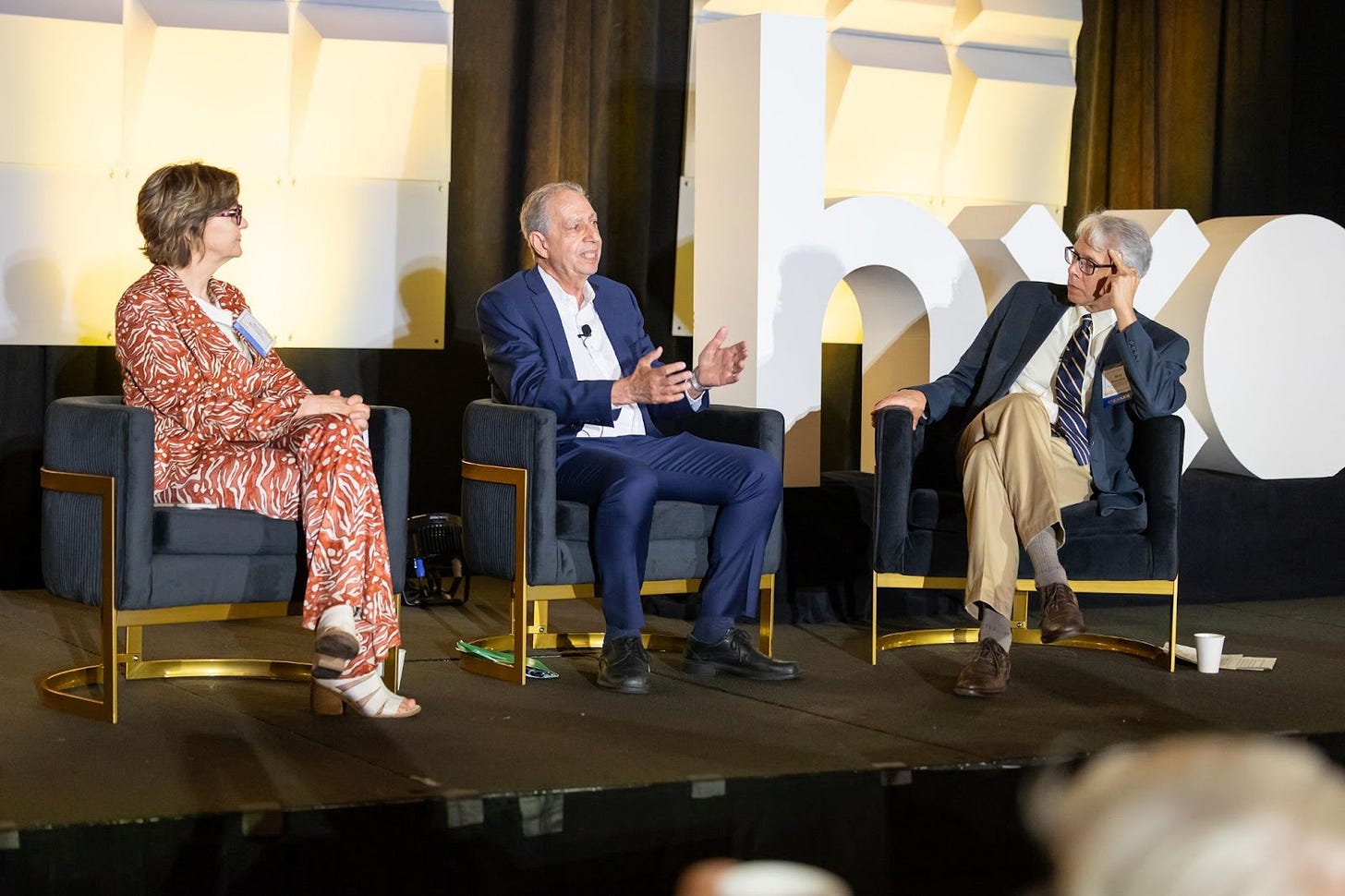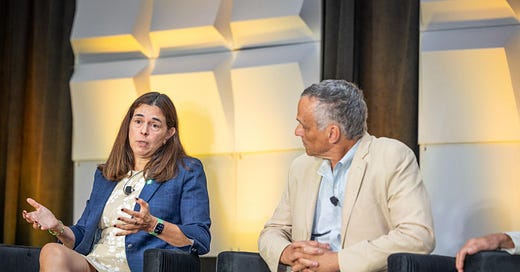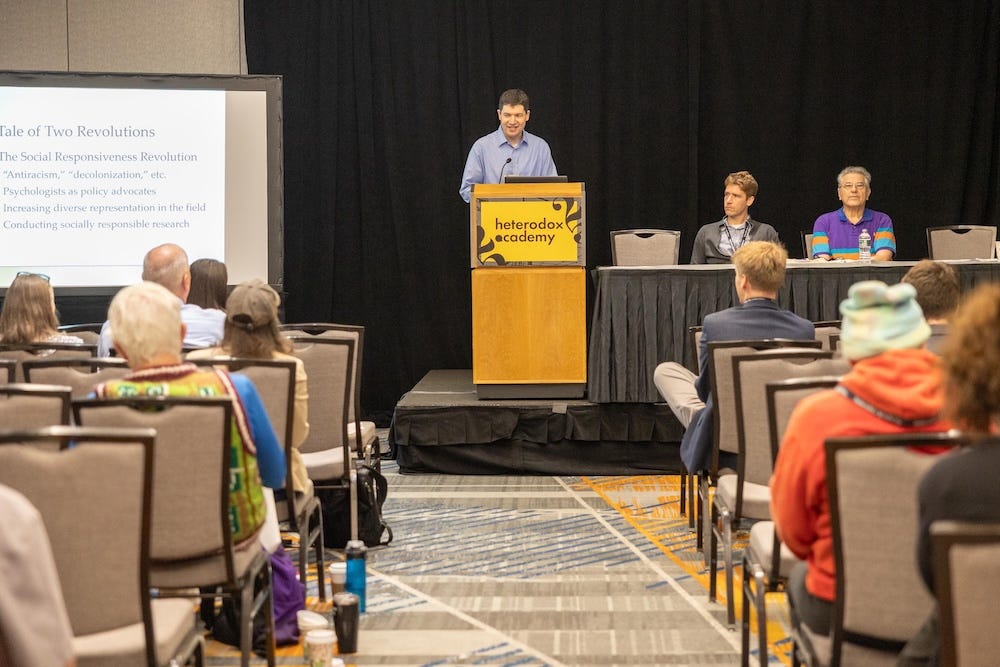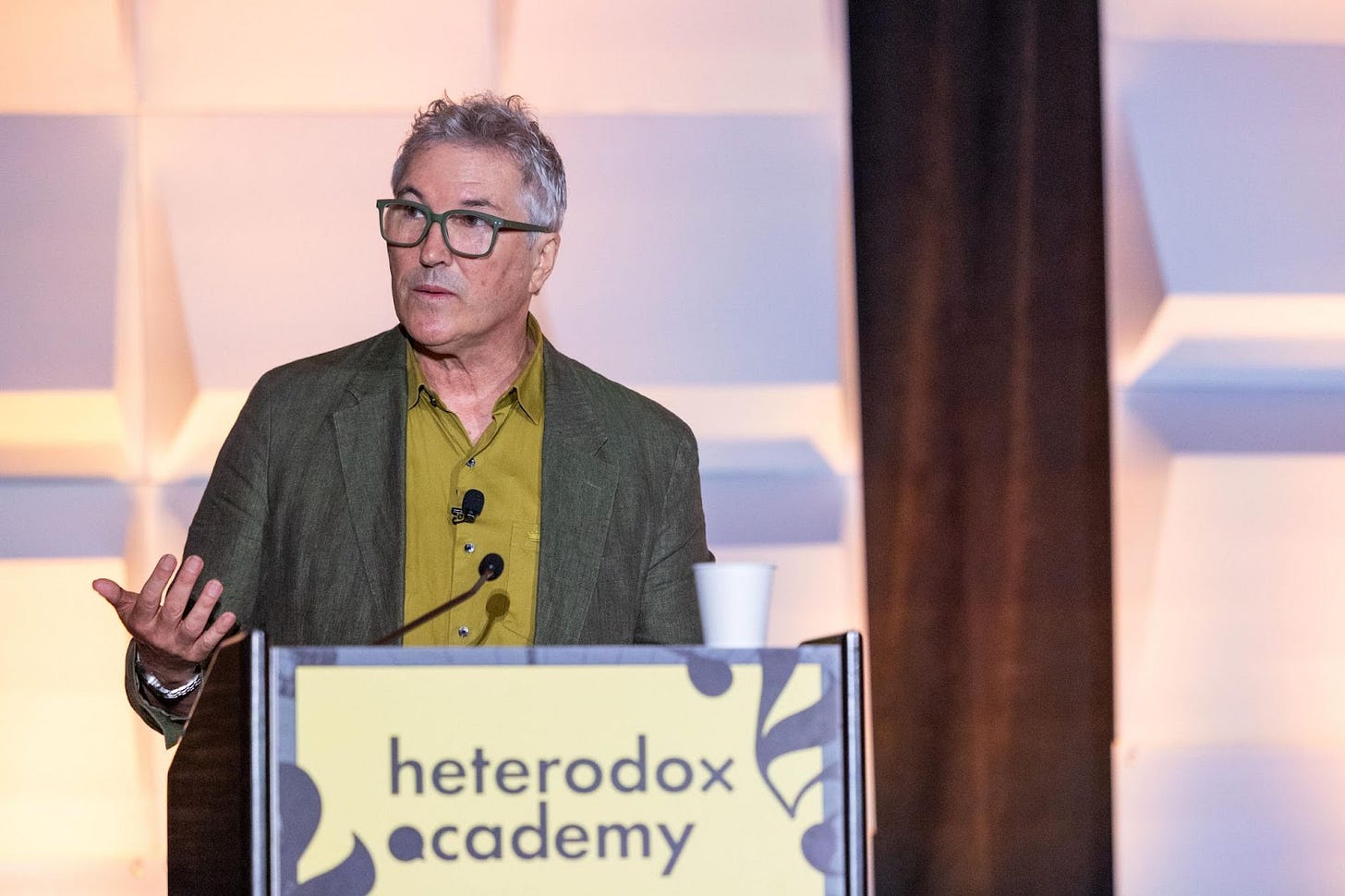As the third and final day of Heterodox Academy’s 2025 conference is getting underway in a steaming New York City, participants are continuing to discuss a wide array of higher education issues – from disciplinary specific actions (“Positioning Anthropology for a Heterodox Academic Future”) to the global issues (“The Role of Legislation in Reforming the Academy”).
It’s been a year like no other in American academic life, and so it’s also been an HxA conference like no other. The one constant for this long-time Heterodox Academy member is that, at an HxA conference, you never know what you’re going to hear about, and as a consequence, you never know what you’re going to think.
A quick poll of the HxA staff in the conference management office showed I’m not alone in that experience. Asked what she found surprising, HxA Research Assistant Erin Shaw named the number of sessions devoted to STEM, including one on sociopolitical bias in medical and mental healthcare and “Freeing Science amid Conflicting Values.” Director of Research Alex Arnold said he was somewhat surprised to see the session on DEI be standing room only. The issue is certainly not dead, with presenters and audience members at the conference session showing a very diverse range of views and ideas. Executive Director Michael Regnier told me he’s been surprised “by the historical sweep of many discussions,” as attendees are working to make sense of how the last decade fits into the big picture, “even wondering whether universities as we know them will exist at all over the next century.”
Director of Communications Nicole Barbaro named as surprising the intense debate that broke out during the university presidents panel between Dartmouth's Sian Leah Beilock and Wesleyan’s Michael Roth as they discussed how to manage the actions of the Trump Administration. While Beilock argued for a two-pronged approach – fighting in court illegal funding cuts while working with the administration on reasonable reforms – Roth said that, while the issues HxA has worked on still matter, dealing with those under Trump is like working on making a better milkshake when the house is on fire.
While Denver’s Jeremy Haefner characterized himself as relatively optimistic about higher ed, and Colgate’s Brian Casey Roth spoke of “excruciating and emotional” meetings with his board of trustees, Roth described the federal government as “trying to destroy civil society” by undermining the legitimacy of the universities, law firms, and journalism. Instead of “twiddling thumbs” about questions like whether the business school or the math department don’t have enough Republicans, Roth said, higher ed advocates should be calling out “the indecent, lawless, authoritarian attacks” on our sector. But Beilock argued the on-campus work that includes such things as helping students learn to talk across difference must continue. Roth responded that he is worried “we’ll all think that dialogue across difference is the answer to fascism.” (Videos will become available soon.)
In a Heterodox Conversation on the main stage, New College of Florida Trustee (and Emory Professor Emeritus of English) Mark Bauerlein and UC Riverside Distinguished Professor of Sociology and Social Policy Steven Brint wrestled with the questions of how much and what kinds of government interventions are good and appropriate, with Bauerlein generally in favor of Republican interventions and Brint generally skeptical.
Bauerlein delivered a strong view of what the humanities are for: the maintenance and preservation of tradition with the ultimate goal of instilling humanitas in students through the teaching of “great books, high art, and the American heritage.” Brint, meanwhile, detailed the likely historical damage to American science under Trump, calling it an unfolding tragedy and self-inflicted wound. Bauerlein said he expected the Trump administration in about a year to restore funding to such science as cancer research.

Presaging the intense exchanges throughout the conference, in his opening keynote, HxA President John Tomasi described the last year as “a whirlwind of challenges, exciting opportunities opening up, and certain dangers that are new arising on the scene.” Referring to a Substack post by John Carter, Tomasi asked whether universities today are akin to the English monasteries of the 16th century – near the end. He then introduced “Open Inquiry U: Heterodox Academy’s Four-Point Agenda for Reforming Colleges and Universities” as a path forward to avoid such a fate. As detailed here, the plan calls on institutions to (1) commit to open inquiry, (2) unleash the free exchange of ideas, (3) insist on viewpoint diversity, and (4) invest in constructive disagreement.
Tomasi spoke of HxA’s work with its 74 Campus Communities to enact positive change from within, and noted that HxA is taking applications for new on-campus affiliates now. While HxA has long drawn “campus contras,” in Tomasi’s words, we are now working with “principled allies” on campuses to achieve cultures of true open inquiry.
We’ll be bringing you videos and more from the conference in the coming days. Don’t forget to sign up for HxA’s email newsletter (separate from and in addition to this Substack newsletter) so that you don’t miss out, and also consider subscribing to HxA’s YouTube channel.







